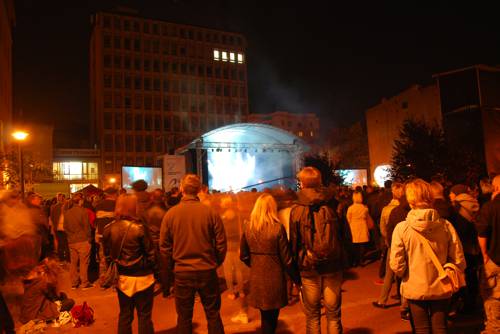
FAQ About Cultural Impact of Rock Operas

What is a rock opera?
A rock opera is a type of album or theatrical production that tells a coherent story through rock music. Unlike a traditional opera, which is performed in a classical style, rock operas usually incorporate modern, popular musical styles, large-scale productions, and dramatic storytelling techniques.

How did the rock opera 'Tommy' influence the music industry?
'Tommy', released by The Who in 1969, is considered one of the first rock operas and significantly influenced the music industry. Its success demonstrated the viability of conceptual albums and provided a framework for future artists to explore narrative-driven music, blending theatrical elements with rock. It also paved the way for theatrical performances of albums, leading to multimedia storytelling in music.

What themes are explored in 'Jesus Christ Superstar'?
'Jesus Christ Superstar', composed by Andrew Lloyd Webber and Tim Rice, explores themes such as faith, betrayal, and the human aspects of religious figures. It presents a modern, rock-infused take on the last week of Jesus' life, focusing on the relationships and personal struggles of key characters like Jesus, Judas Iscariot, and Mary Magdalene.

How do rock operas differ from traditional operas?
Rock operas differ from traditional operas primarily in musical style and presentation. Traditional operas use classical music and often feature orchestras, while rock operas rely on rock music with electric guitars, keyboards, and modern instruments. Additionally, rock operas usually present contemporary themes and stories, making them more accessible to today's audiences.

Why are rock operas important culturally?
Rock operas play a significant cultural role by merging music with storytelling, often tackling contemporary issues, thereby resonating with a wide audience. They challenge social norms and provoke thought, encouraging dialogue about societal changes and concerns. Rock operas also reflect the time in which they are created, offering insights into the cultural zeitgeist and influencing both music and theater.

What are some famous rock operas besides 'Tommy' and 'Jesus Christ Superstar'?
Aside from 'Tommy' and 'Jesus Christ Superstar', other famous rock operas include 'The Wall' by Pink Floyd, 'Bat Out of Hell' by Meat Loaf, and 'American Idiot' by Green Day. These productions have also had significant cultural impacts, addressing complex themes and pushing the boundaries of the genre.

How do rock operas influence popular culture?
Rock operas influence popular culture by introducing innovative storytelling methods and addressing universal themes that resonate with audiences. They have inspired film adaptations, stage productions, and concerts, expanding the reach and impact of the music. Rock operas often become cultural milestones, marking significant developments in music and theater.

What role does music play in rock operas?
Music in rock operas serves as the primary vehicle for storytelling. It sets the tone, conveys emotions, and moves the narrative forward. Unlike traditional storytelling, where dialogue may play a central role, rock operas rely heavily on lyrical content to deliver the narrative and develop characters, creating a unique, immersive experience.

Can non-rock genres be included in rock operas?
Yes, while rock is the primary genre, rock operas can incorporate elements from other musical genres to enhance storytelling and diversify their sound. Genres like blues, pop, orchestral, and even electronic music may be used to complement the rock foundation, enriching the narrative and broadening the appeal to different audiences.

How has 'The Wall' by Pink Floyd impacted the rock opera genre?
'The Wall', released in 1979, has had a profound impact on the rock opera genre. It presented a complex, layered narrative exploring themes of isolation and identity, supported by groundbreaking musical and theatrical elements. Its success elevated the rock opera as an art form, showcasing the potential for albums to serve as platforms for deep storytelling and artistic expression.

What is the narrative structure of a typical rock opera?
A typical rock opera follows a narrative structure resembling that of a traditional theatrical play or concept album, where songs are sequential and interconnected. Each track or score contributes to the overarching story arc, with characters, conflicts, and resolutions woven into the music, providing continuity and depth to the storytelling.

How do rock operas address social issues?
Rock operas often tackle social issues by embedding themes such as war, peace, identity, oppression, and freedom into their narratives. Through characters and plotlines, they generate awareness and provoke discussion, serving as a mirror to societal challenges and encouraging audiences to reflect on these critical topics.

What elements make a successful rock opera?
A successful rock opera typically includes compelling music, a coherent and engaging storyline, well-developed characters, and strong thematic content. The integration of visual elements in performances and the ability to resonate emotionally with audiences also contribute to the success and longevity of a rock opera.

Can rock operas be adapted into other media forms?
Yes, rock operas can be adapted into various media forms, such as films, stage musicals, and live concerts. These adaptations help extend the operas' reach and allow different interpretations and presentations of the original stories, further enhancing their cultural impact and audience engagement.

What is the significance of narrative in rock operas?
The narrative in rock operas is crucial, as it binds the music and storytelling into a unified experience. The storyline provides context for the songs and allows for the exploration of themes and character development. This narrative element distinguishes rock operas from other types of music albums, providing a more enriched listening experience.

How did 'Bat Out of Hell' influence musical theatre?
'Bat Out of Hell', released by Meat Loaf in 1977, influenced musical theatre by combining rock music with theatrical storytelling in a unique way. Its dramatic themes and powerful performances bridged the gap between rock concerts and theatre productions, inspiring future musicians and playwrights to experiment with cross-genre storytelling.

What innovations did Andrew Lloyd Webber bring to rock operas?
Andrew Lloyd Webber introduced several innovations to rock operas, such as using a blend of musical styles, from classical to rock, to expand the auditory palette. His work on productions like 'Jesus Christ Superstar' showcased how contemporary themes and modern stagecraft could transform traditional narratives, bringing a new dynamic to musical theatre.

Are there rock operas aimed at younger audiences?
Yes, there are rock operas created for younger audiences, which often incorporate elements of fantasy, adventure, and relatable life experiences. Productions like 'American Idiot' by Green Day, with its exploration of youth culture and rebellion, exemplifies how rock operas can appeal to and engage younger audiences effectively.

How have technological advancements affected rock operas?
Technological advancements have significantly affected rock operas by enhancing production capabilities, from sound engineering to visual effects. Technology allows for innovative staging, high-quality recordings, and immersive experiences, making rock operas more accessible and engaging to diverse audiences around the world.

Do rock operas have a dedicated fan base?
Rock operas indeed have a dedicated fan base, composed of music lovers, theater enthusiasts, and those appreciating complex storytelling. This fan base often supports adaptions and live performances, ensuring the continued popularity and commercial success of prominent rock opera productions worldwide.
